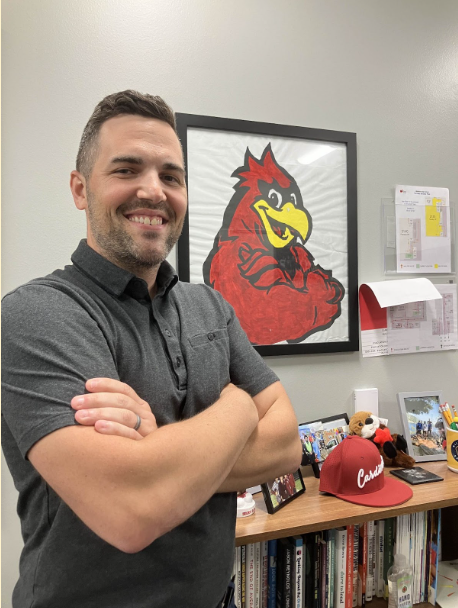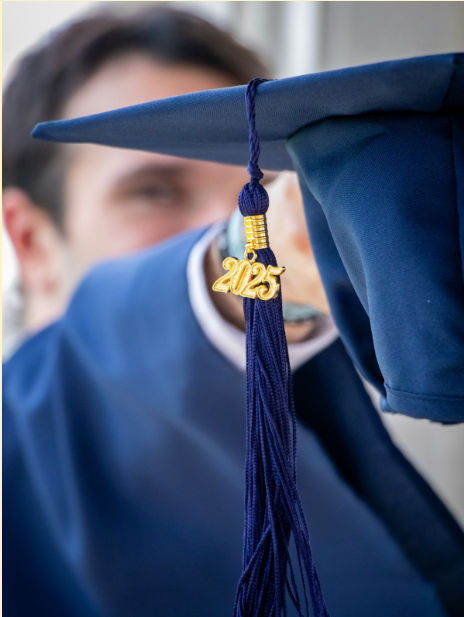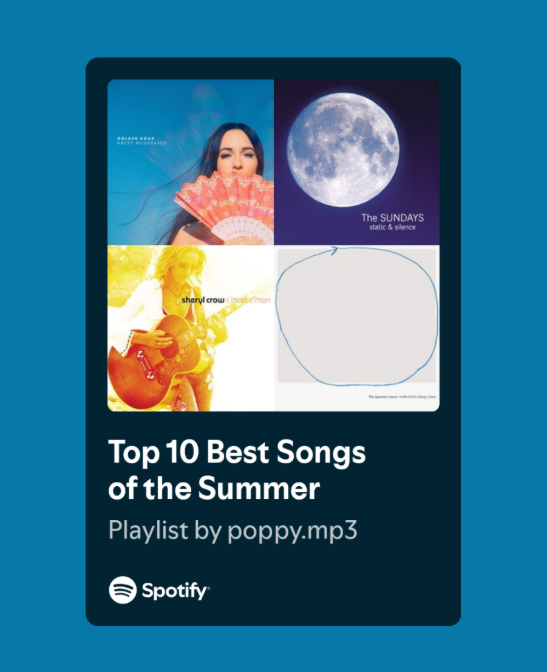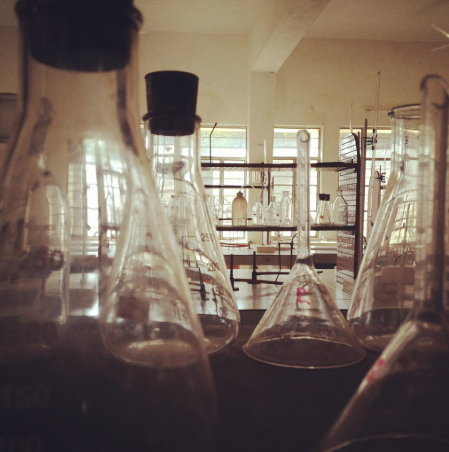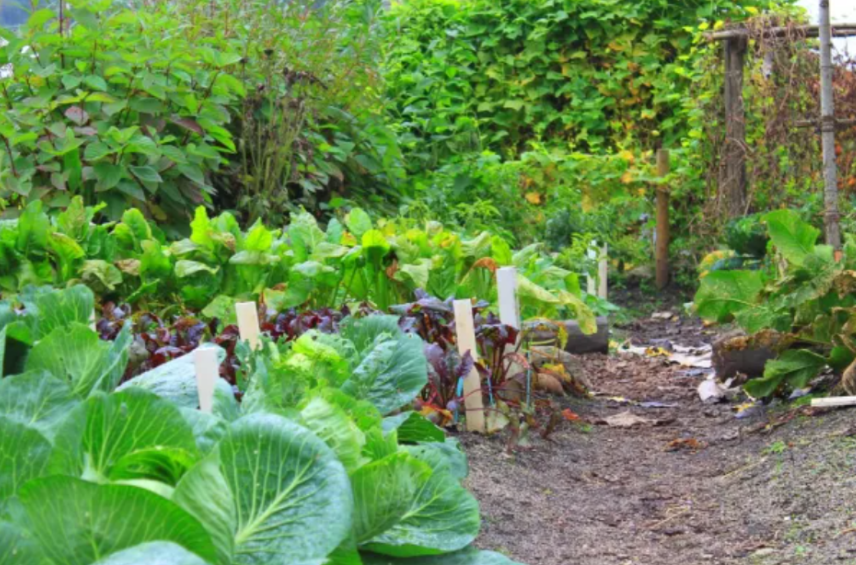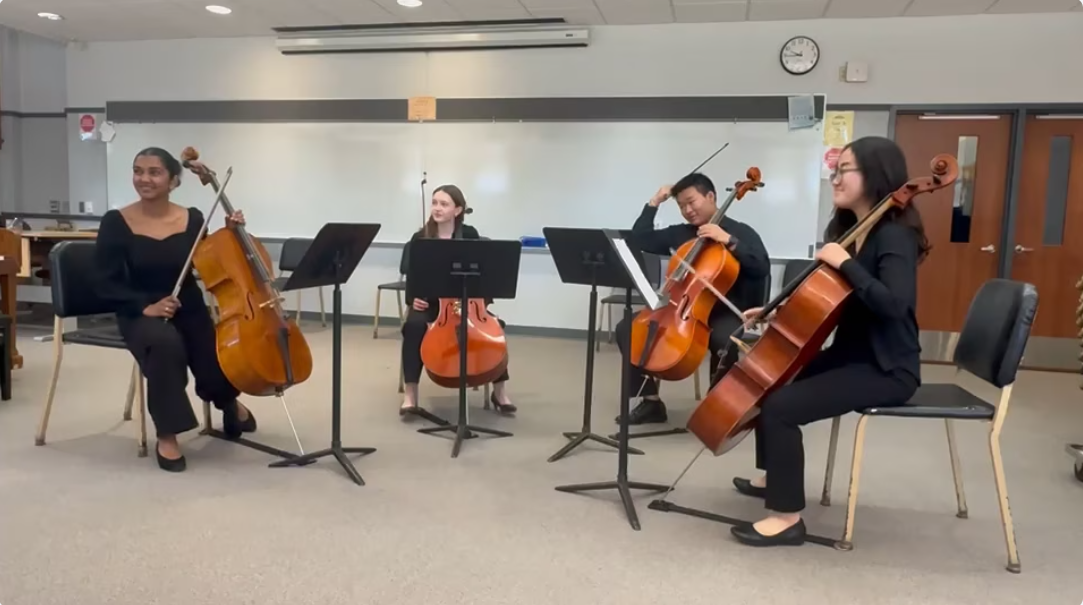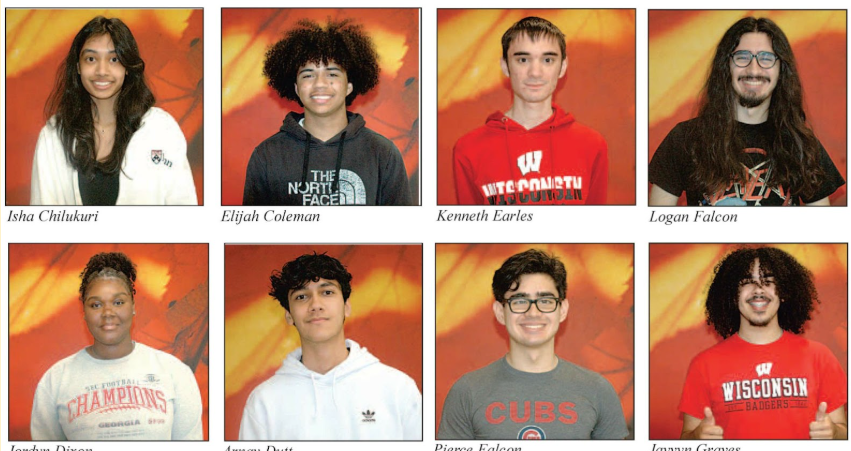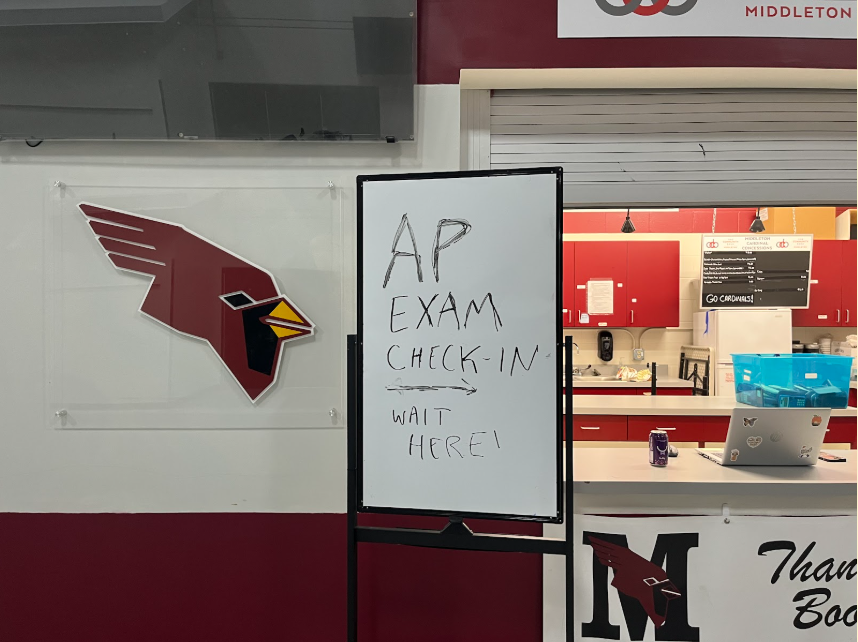Middleton High School Students Speak Out Against Sexual Disparity
March 24, 2023
AFRICaide and 4W (Women and Well-being in Wisconsin and the World), two University of Wisconsin-Madison-based social justice organizations, reached out to Middleton High School’s (MHS) Girl Up club to volunteer for their tenth annual International Women’s Day Celebration on Saturday, March 4, 2023. Claudia VanBendegom, a student on the Girl Up Leadership Board, and Dima Llanos, a Girl Up club member, answered the call.
“The purpose of this event is to bring together women and girls from all backgrounds to celebrate International Women’s Day. We are coming together to reflect on how we can reduce gender inequality within and beyond our community,” said Kimberly Rooney, a member of the event’s planning committee. “All of us at AFRICaide and 4W strive to improve the lives of women and girls — locally and globally. So we are calling all women and girls to celebrate our day and to support one another.” Those women included Llanos and VanBendegom.
After attending planning meetings with committee members including Rooney, Llanos was invited to speak on the event’s Intergenerational Panel, and Vanbendegom later joined her. The two were asked to speak on the 2023 theme, women’s disparity in innovation and technology, from the student perspective.
The event was hosted by AFRICaide founder and president, Emilie Songolo, and 4W director Lori DiPrete Brown. Attendees were invited to an all-day celebration for local women’s achievements at the Christ Presbyterian Church in Madison, where the Girl Up volunteers helped coordinate vendors, speakers, exhibitors, award shows, panels and food.
Pre-Panel
Llanos and VanBendegom helped at the event — setting up, directing attendees and cleaning up — while they simultaneously prepared for their appearance. Llanos and VanBendegom had given speeches for Girl Up before, but they had never participated in a panel. They prepared answers to questions before the event focusing on equity and gender equality in technology, but they were also ready to be flexible.
The event’s Intergenerational Panel was held at the very end of the Women’s Day celebration, and Llanos and VanBendegom were joined by keynote speaker Annette Miller and DiPrete Brown to engage in conversation with the audience and one another. The panel focused an a variety of ages in hopes to enlighten older generations on outside perspectives.
“This panel is focused on all sorts of ages,” VanBendegom said. “They wanted a panel full of different opinions and people of different ages so that we could all speak on our own experiences.”
Llanos also believed that the event organizer and AFRICaide founder and president, Emilie Songolo, influenced the way she went into the panel.
“She was really incredible with guiding me. … She was the one that invited me to be on the panel, and I think that her willingness to hear my thoughts throughout the entire process … really changed my perspective,” Llanos said.
Both participants were very happy to have been given the opportunity.
“Even though I wasn’t a part of the planning beforehand, [it is a] really amazing experience to be offered a seat at that table with so many extraordinary women,” VanBendegom said.
After lunch, dancing and awards, VanBendegom and Llanos finally took a seat at that table where the panel commenced.
Panel
The very first question offered to the panel asked how the panel members thought innovation and technology could “be used to create an equitable world for women and girls.”
DiPrete Brown kicked off the conversation by offering her action plan, which was making sure women had leadership roles and representation in technology.
Miller pointed out that the technological algorithms that are applied to social media have the ability to create a false sense of inclusion, building off of DiPrete Brown’s idea. “We can’t forget that there are zeros and ones that are happening. We need people paying attention to the zeros and ones, as well as making sure that we’re represented,” Miller said.
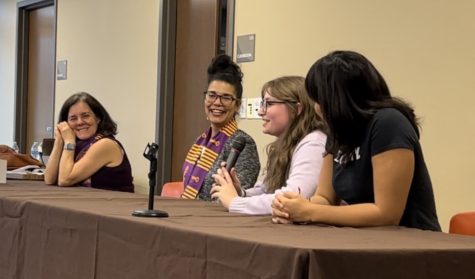
VanBendegom went next. “Dima and I, we represent an age that is starting to be influenced heavily by technology,” VanBendegom said. “I think that a lot of the representation that we would see isn’t just the people around us in our normal atmosphere, it’s also on a global scale because of technology. It’s really important to bridge those gaps and make sure that it actually is equitable representation.”
Llanos then jumped in with her own action plan. “I know that there are a lot of demographics of people … that are consistently being left out and not being talked about. I think that using platforms that bridge different gaps of people, like social media, … to spread awareness about stuff like this … is going to be a consolidated effort,” Llanos said.
“You sparked me,” Miller said in response to Llanos’ statement. Miller encouraged youth to “push back against the makers” of technology. She emphasized “staying vigilant” of the actions of the people policing and monitoring social media algorithms that suppress some ideas from the broader conversation.
A concern of many attendees of the event was the barrier to entry of social media and technology. Many older women feared a widening intergenerational divide and a resulting loss of progress towards women’s equality if older women could not pass the baton to younger generations. VanBendegom addressed the concern with a final comment to conclude the first prompt.
“With the rise of technology and social media in particular, anyone beyond the immediate consumers … get really intimidated by [technology] because it’s a whole new world,” she said. “Just because technology and social media are a new factor in that doesn’t mean that we don’t need our elders anymore.”
The second and final question of the panel asked, “As different leaders in your specific fields and organizations, what role can you and all of us in our capacities play in improving access to digital tools as well as creating inclusive digital spaces for women?”
Miller kicked it off by alluding that she hoped to rally support in creating more spaces for communities to practice engagement and equity where teens can have access to technology.
Llanos had the floor next. “Claudia and I go to Middleton High School,” Llanos said, “which is fortunately a very well-resourced and well-staffed school.” She continued, recognizing that less privileged students do not have anyone to give them that “push” to explore their interests and opportunities, which young people need to direct their attention to in order to “realize their best future.”
DiPrete Brown pointed out how 4W aimed to fill adolescents’ need for support. “One thing we do in 4W is simply create circles. Circles of undergraduates, circles of grad students, circles of scientists and so on,” DiPrete Brown said. This included digital circles. “Let’s not wait another year,” she said, in hopes that 4W would continue to make strides towards digital accessibility throughout 2023.
Post-Panel
During the panel, VanBendegom and Llanos spoke primarily about the positive and negative influences of technology on youth, women and girls in particular.
VanBendegom thought that the input from different age groups incited a lot of thought. “It’s important for those in positions of power, and who have awareness on what disparities might exist and potential ideas on how to fix them [to] push others,” she said. “Especially the youth.”
Both Llanos and VanBendegom were inspired by the women they spoke to throughout the day, and they hoped bridging the intergenerational gap in person would be a step towards more collaboration and guidance.
“We’re not going to find equity by saying that that’s something that needs to happen,” VanBendegom said. “Just go for it. Start making that change. And start reaching out and giving other people the push that they need to make a change within their communities.”
Finally, the Girl Up members encouraged students to get active in their school organizations.
“People don’t really think about how important it is to get life experience from the clubs that MHS offers,” said Llanos, which can be found through high school through student organizations like Girl Up.
Keynote Speaker Annette Miller
In addition to their participation in the panel, Llanos and VanBendegom were able to attend the speech of the keynote speaker, Annette Miller. Miller is CEO of EQT by Design, a Black- and woman-owned business in Madison.
During Miller’s keynote speech, she offered many inspiring words to the women of Madison.
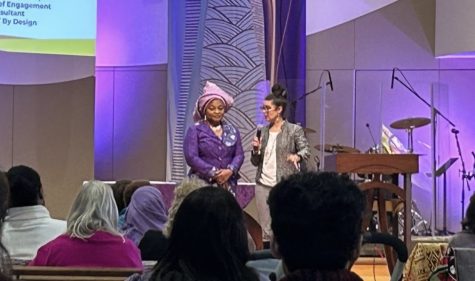
“[Women] no longer need to look through a lens of what our worth or value is as women,” Miller said, reflecting on her speech. “We are strong, directed, wise and know how to build inclusion,” she said. “We demand to be safe and treated with respect and dignity.”
She continued with several calls to action: “Let’s … push to equalize each other and all of us. Let’s not leave anyone behind. We are better when we are all better.”
Miller hoped to get several messages across to the audience, including “reknitting [their] sisterhood,” encouraging them to “not fear and speak truth to power” and pushing the idea of “listening to both the individual and the collective.”
Miller was inspired to speak at the panel because of her experiences in racial equity and social justice, as well as her upbringing, being “mixed race, having an immigrant mother,” she said. After the event, Miller said she “was impressed with the number of community members who were present that represented so many different diverse and broad racial, ethnic and linguistic” groups.
As for her opinion on the event’s panel members Dima Llanos and Claudia VanBendegom, Miller stated, “I thought in particular that the MHS panelists were so thoughtful and went deep in taking the questions and dialogue seriously. [I] really appreciated the camaraderie that emerged from the discussion between us.
“I know that high schools, including Middleton, have been in the paper for incidents that have had racialized undertones,” Miller said. “I really challenge all persons to think about: Where is the anger coming from? What is the fear? What is being perceived as being taken away? Don’t decide in your fear what is good, bad, right or wrong. … Educate yourself about people, their stories, [and] lives,” she encouraged. “No one life, story or journey is the same, and we each are perfectly imperfect, and that is truly what makes life unique and interesting.”
Organizers Emilie Songolo and Lori DiPrete Brown
Through the planning process, Llanos had the privilege of working with one of the event’s organizers, Emilie Songolo. Songolo is the founder of AFRICaide, a UW-Madison-based nonprofit organization. Her role as an educator and samaritan encouraged her to establish Madison’s International Women’s Day celebration in 2013.
“When I moved to Madison, I did not see any group — any place, any organization, nobody — celebrating International Women’s Day. And I wanted to change that,” Songolo said. She said this year’s event was a “total success.”
“Because we haven’t been in person for a long time, we had no idea what the turnout would be like,” she said, but it exceeded expectations. So did Miller’s keynote speech. Attendees of all backgrounds reported they could hear their story in Miller’s words.
Songolo saw purpose in bringing the women of the community together. “The women and girls’ story is one story,” she said. “It’s not a single story, but it’s the same. That’s why it’s so good to come together and listen to other people.”
Songolo was encouraged and “energized” by the MHS Girl Up members who participated in the event. “The future belongs to girls,” she said. “We just need to make sure that you have a space for your voice to be heard. You have a voice, you have a lot of experience, you have a lot of knowledge, you have aspirations. … As a student, sometimes you may feel that you are just a student. … Don’t think you’re just a student. Honestly, you can stop adults when you have something to say.”
Lori DiPrete Brown, co-coordinator of the event, chimed in. “I’m just so grateful for the Middleton High School students coming, because [it makes us] realize that they’re giving us a job to do. Yes, nurture [them], be there for [them], but also see [their] strength and [their] ability,” she said.
Conclusion
This year’s International Women’s Day celebration was deemed a huge success by those who organized and attended it. Many, including the Girl Up attendees, found the event inspiring and uplifting. Watching women from different backgrounds come together to uplift one another was certainly a heartwarming experience.





